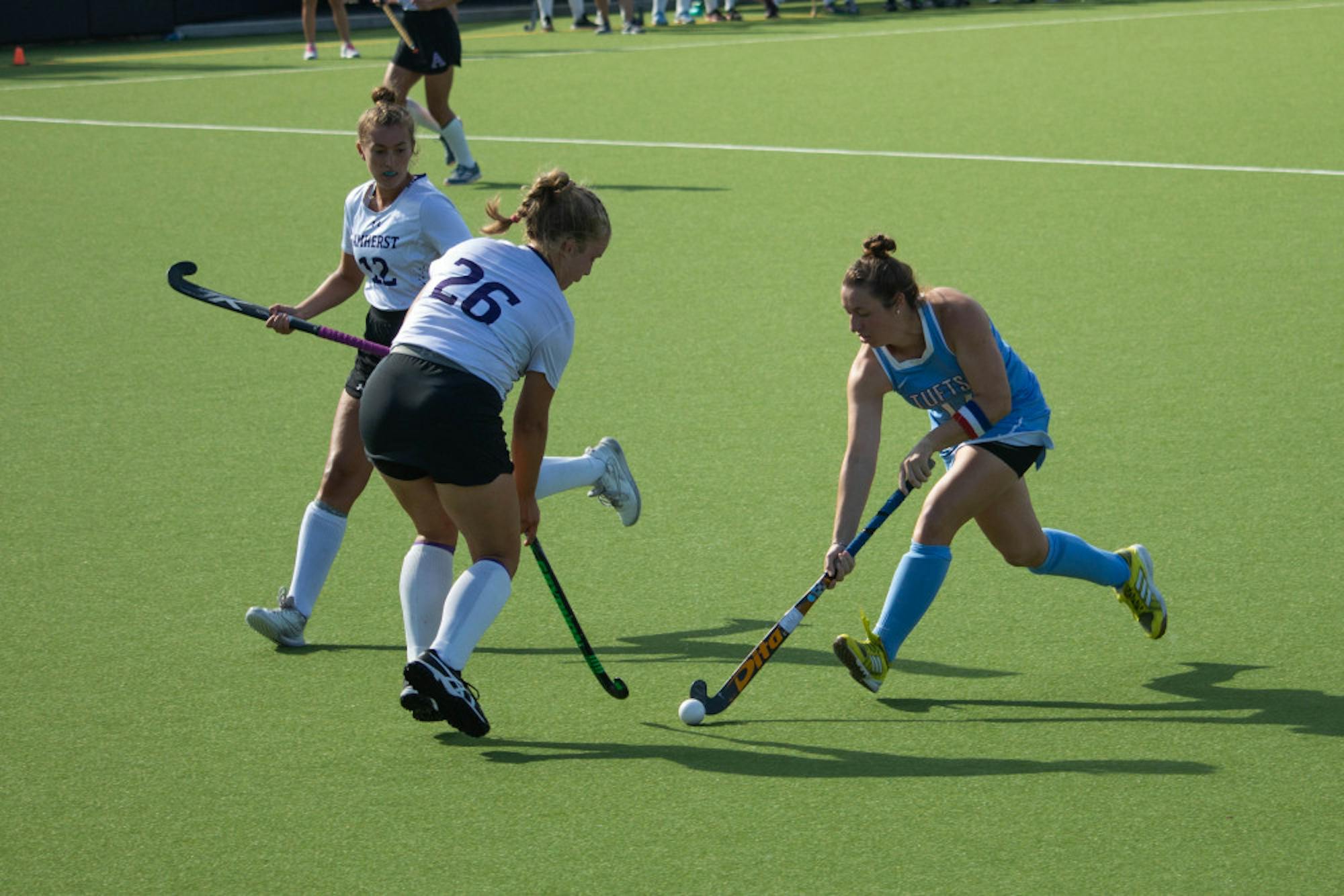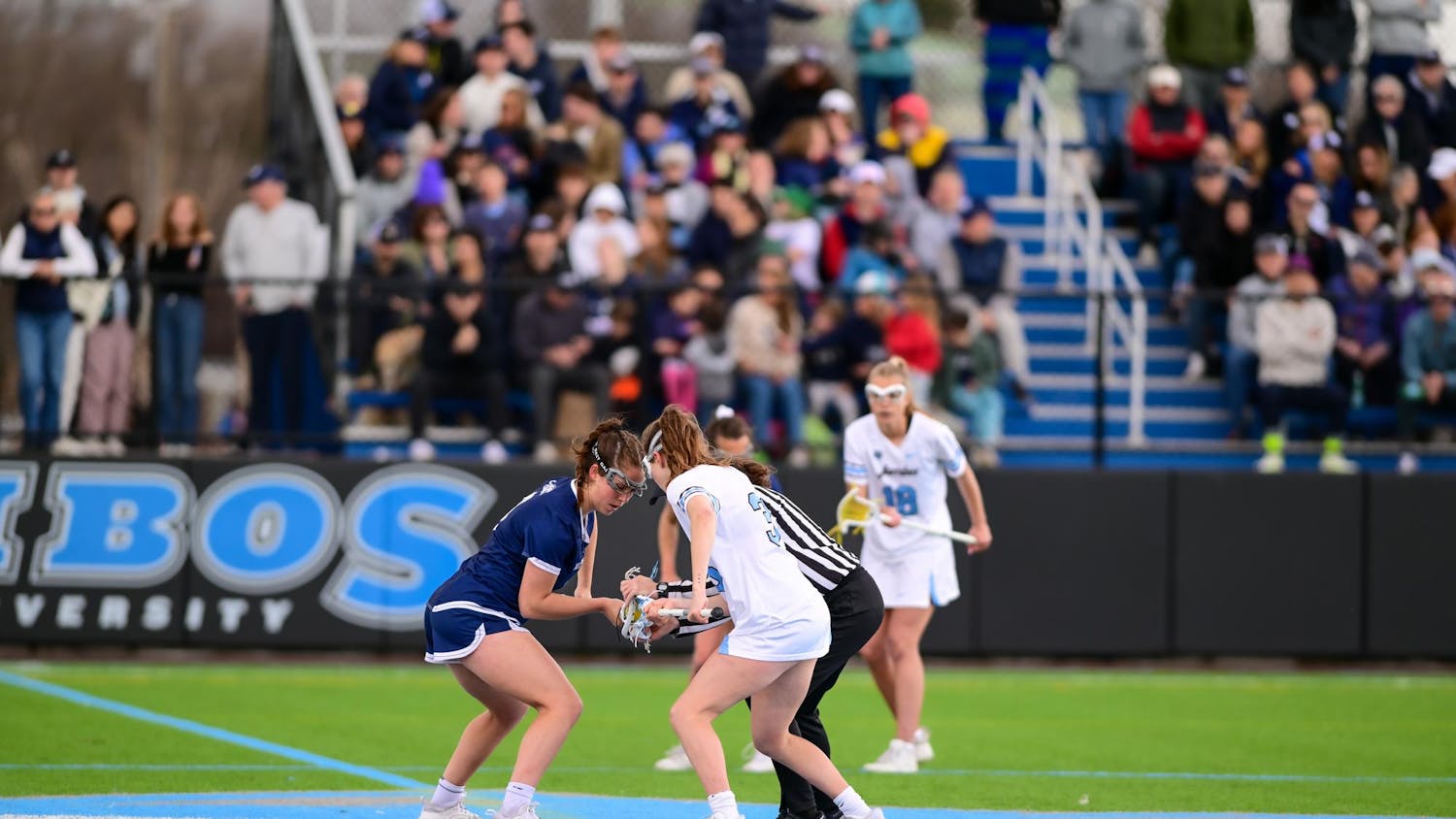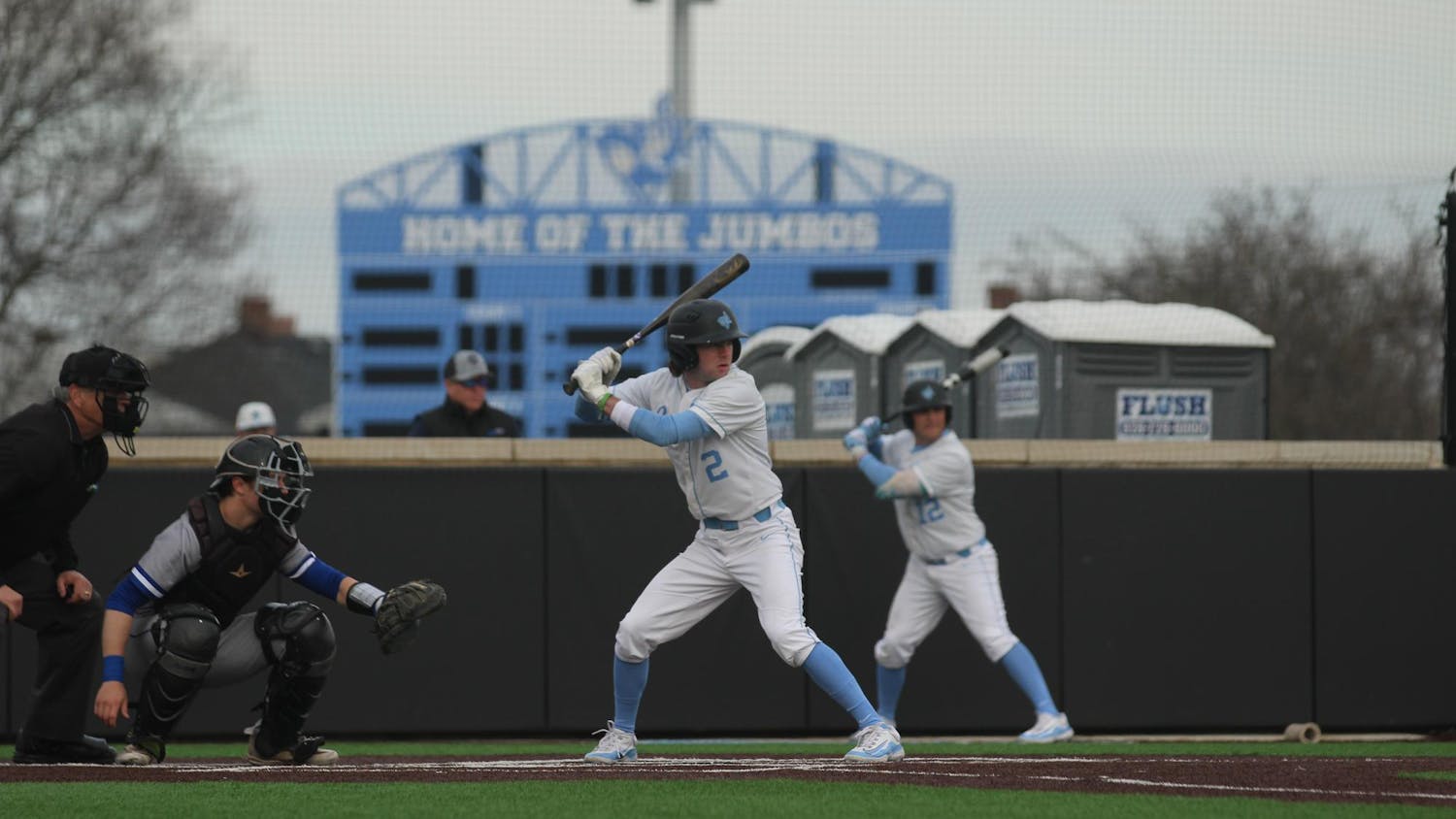The 2018 national runner-up Jumbos got off to a hot start, winning their first three games, all of which were against top-20 teams.
No. 3 Tufts began its season on Sept. 7 with a NESCAC matchup against then-No. 16 Williams. Two late-game goals carried the Jumbos to a 2–1 victory. Against then-No. 20 Endicott College, Tufts relied on two fourth-quarter goals for another 2–1 win. On Sunday, Tufts defeated then-No. 14 Rochester University with a score of 3–1.
In the Rochester matchup, the Tufts offense dominated the game, outshooting Rochester 20–5 and winning the penalty corner column 7–2. A quick goal in the fifth minute from Tufts sophomore midfielder Gillian Roeca got the scoring started. Three minutes later, sophomore midfielder Claire Foleydoubled Tufts' lead to 2–0.
In the second and third quarters (NCAA field hockey switched to four 15-minute quarters instead of two 35-minute halves this year) Rochester remained scoreless, as it struggled on offense. In the fourth quarter, Tufts junior forward Alexis Chauvettebrought the tally to three for the Jumbos following a penalty corner from senior midfielder Marguerite Salamone. With just over four minutes remaining in the game, the Yellowjackets mustered a goal from sophomore midfielder Leona Fisher, but it was too little, much too late.
Roeca said that passing was one of the keys to success for the team.
“Especially in the last game, we had a lot of good passing patterns,” she said. “We kind of let the ball do the work instead of tiring ourselves out, which definitely gave us an advantage over other teams — kind of tired them out.”
The first two games told a different story than the early scoring against Rochester. Against Endicott, Tufts allowed an early goal in the 13th minute to the Gulls’ senior forward Kristen McCarthyoff of a penalty corner attempt.
Through the first half, the Jumbos and the Gulls had their fair share of shots and penalty corners. However, in the second half, the Jumbos pulled away, outshooting the Gulls 13–0 while taking seven penalty corners compared to the Gulls' zero.
However, the offense did not capitalize on those attempts until the final 10 minutes of the match. Foley assisted two goals in that final stretch: one in the 51st minute to Chauvette and another in the 59th minute to Roeca. The Jumbos held on to their 2–1 lead for the final minute through to the final horn.
Foley explained the Endicott game was a transition, having played on field turf at Williams before moving back to AstroTurf at home.
“The style of play is different [on field turf] — it’s just scrappier, the ball is bouncier,” Foley said. “And our style of hockey here at Tufts is kind of a clean passing game with smooth balls and just smart play and less dribbling and individual work — and that’s a hard game to play on field turf. So, I think our second game versus Endicott was kind of an adjustment game.”
Similarly, against Williams, Tufts relied on two goals in the final six minutes to walk away with the win.
The game was scoreless up until the 54th minute, when Ephs first-year forward/midfielder Addie Sidles scored off an assist from junior forward Claire Fitzpatrick. But with the pressure on, the Jumbos rallied, and Salamone and junior midfielder Beth Krikorian scored within a three-minute frame. The Ephs had another chance on a penalty corner in the final minutes, but the shot was saved by Jumbo sophomore goalkeeper Andie Stallman.
Foley said the late-game scoring against Williams and Endicott, though nerve-wracking, was not too surprising.
“Literally, our Williams game was the most stressful game of my life,” Foley said. “There are studies that have shown that almost every goal is scored within two minutes of the goal that’s already scored, and that actually came true in the Williams game. Whether we score, or we get scored on, we always say 'two minutes' because we either need to play really great defense for the next two minutes or we need to really push the offense to score again.”
The 3–0 start bodes well for the Tufts squad, which last year made it to both the NESCAC championship final and the NCAA championship final, losing to NESCAC foe Middlebury in both tournaments.
From here on out, the schedule features mainly conference games — nine of the 12 remaining games are NESCAC opponents. The NESCAC, as usual, is shaping up to be a competitive conference, as Middlebury, Bowdoin, Williams, Bates, Trinity and Colby all rank in the top 20 of the NFHCA poll.
“I think because we were so strong coming in second place last year, a lot of teams are excited to play us to try to beat us,” Roeca said of the season looking forward.
The team plays at Massachusetts Institute of Technology tonight at 6 p.m. and hosts Colby at Ounjian Field on Saturday at 12 p.m.
No. 3 field hockey starts season with 3 straight wins against top-20 teams

Senior forward Rachel Hamilton confronts two defenders in the homecoming game against Amherst on Ounjian Field on Sept. 29, 2018.





